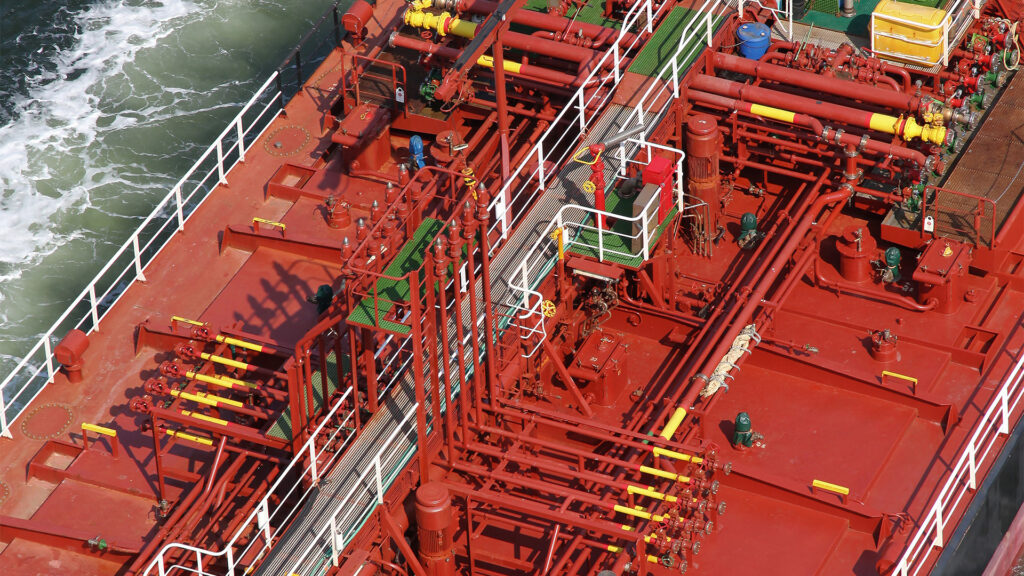Damages for wrongful arrest – test case still awaited! November 2015
The first decision in Australia involving an application for damages for wrongful arrest under s.34(1) of the Admiralty Act was handed down by Justice Rares in the Federal Court of New South Wales on 21 May 2015 in Fuk Hing Steamship Co Ltd v Shagang Shipping Co Ltd1.
Background facts
The plaintiff was the time charterer of the BULK PEACE. The defendant arrested the vessel on 18 March 2014 as surrogate for DONG-A-ASTREA claiming US$66 million for non-payment of monies due to it under a contract of guarantee entered into between the defendant and HNA Group Ltd (HNA), pursuant to which HNA had agreed to guarantee the performance and fulfillment by Grand China Shipping (Hong Kong) Co Ltd of the charter of DONG-A-ASTREA.
On 20 March 2014, the defendant’s solicitors filed a notice of ceasing to act because the defendant went into liquidation in Hong Kong. As the defendant was in breach of an order to file its defence, the plaintiff now sought an order that a default judgment be entered in its favour for US$1,595,986.25.
In addition, on 21 March 2014, the registered owner of the BULK PEACE, Well Far Limited, sought the release of the vessel for want of jurisdiction on the ground that HNA was not the owner of the vessel for the purpose of s.19(b) at the time of the arrest.
On the basis of the available evidence, the court was not prepared to conclude that HNA was the owner of BULK PEACE and, therefore, ordered that the arrest be set aside.
Plaintiff’s application
In response, the plaintiff contended that the arrest of BULK PEACE by the defendant in support of its claim against HNA was “unreasonable and without good cause” within the meaning of s.34. The plaintiff pleaded that it was a person with an interest in the vessel and that the consequence of the arrest was that the voyage charterer, Rio Tinto Shipping, cancelled the voyage charter of the BULK PEACE, as well as two other charters involving two other vessels. In neither case did HNA have any apparent involvement with these vessels and the plaintiff conceded in none of the three cases did Rio Tinto Shipping have a contractual right to cancel the charters.
Plaintiff’s argument
The plaintiff argued that the court should enter judgment in its favour for the purposes of enabling it to submit a proof of debt in the liquidation in Hong Kong.
In reply however, the judge indicated that the defendant’s failure to file a defence in the Australian proceeding after filing the appearance was simply due to its liquidation in Hong Kong.
Key issues identified
In his judgment, Justice Rares noted that:
“… this is the first time in the history of the operation of the Admiralty Act that a claim has been brought in the Court under s.34 of the Act.”
As a result, the judge stated that it would not be appropriate to order a default judgment having regard to the following real and problematic questions:
- Whether a time charterer has an interest in a ship at all for the purposes of s.34. Is a mere economic interest, as the hirer of the ship, sufficient or does the section require the charterer to have a proprietary or possessory interest?
- Whether the defendant did effect the arrest unreasonably and without good cause. In this regard, it is necessary to examine the whole of the evidence and the state of mind of the defendant at the time of the arrest and not appropriate, therefore, to proceed on the basis of a mere pleaded assertion of the ultimate fact to be proved.
- Whether each head of damage claimed by the plaintiff was suffered “as a direct result” of the arrest, apart from the small claim for the loss of hire of BULK PEACE over the period of her arrest, together with any expenses of operating the ship. According to Justice Rares, there must be real questions as to whether, if a third party cancels its contract either without a particular contractual right to do so or in breach of contract with the time charterer, that event creates loss or damage to the time charterer “as a direct result” of the wrongful arrest of the vessel.
Conclusion
In light of the fact that the defendant had gone into liquidation, Justice Rares was not prepared to resolve any of the above issues on a default judgment application as, in his view, such a course would have far-reaching consequences for the proper understanding of how s.34 was meant to operate in a case of wrongful arrest.
As a result, Justice Rares concluded that:
“It is not appropriate that these proceedings be determined on the interlocutory application for default judgment … It is not in the interests of justice that this be the first case to apply the important provisions of s.34(1).”
In the circumstances, the plaintiff’s application for a default judgment was dismissed.
In the future, however, if and when an application is filed under s.34 that results in a contested hearing, Justice Rares indicated that this may then give rise to an opportunity to consider a claim for damages for wrongful arrest. For the time being, however, such a case is still awaited!
For more information, please contact Robert Springall, Partner, on +61 (0)3 8601 4515, or robert.springall@hfw.com, or your usual contact at HFW.
Footnote
- [2015] FCA 682.
Download a PDF version of ‘Damages for wrongful arrest – test case still awaited! November 2015’










